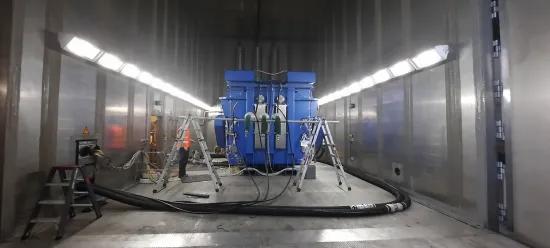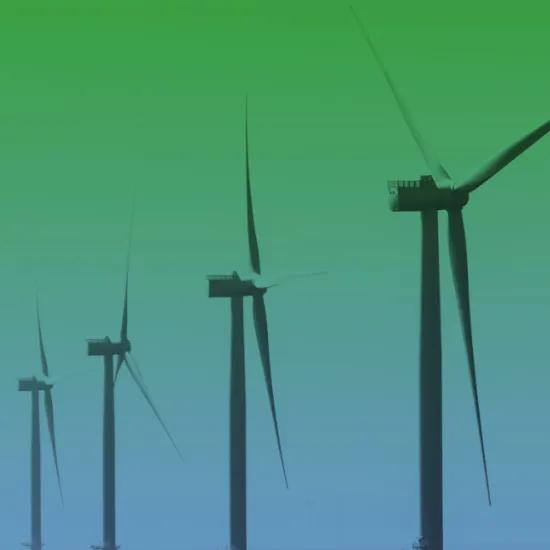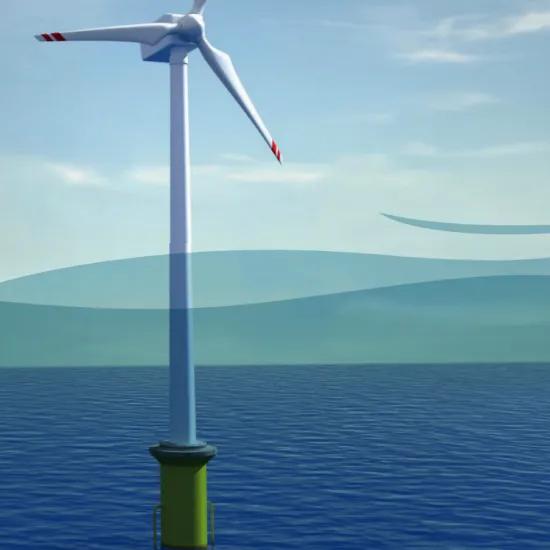After a successful test series, Siemens Energy was able to demonstrate that a new step-up transformer for wind industry applications can also start in cold conditions, to improve the cold-start procedure and to reduce waiting times after a cold period.
Austria-based Siemens Energy is inextricably linked to electric power generation and distribution products. The main products include power and distribution transformers, which have to meet the highest standards. The products should provide a basis for making energy available to people and the environment in a safe, efficient and eco-friendly way.
The company's offerings include two step-up transformers for wind industry applications, including FITformer REN transformers up to 66 kV, equipped with a flame-retardant, biodegradable, insulating fluid. Of these ester-immersed transformers, more than 2,500 units have been installed in offshore wind applications worldwide.
The latest development of this transformer model promises even greater efficiency and reliability, even in cold conditions. Siemens Energy called on the Sirris OWI lab experts to demonstrate that a 15 MVA transformer can also start in cold conditions, to improve the cold-start procedure and reduce waiting times after a cold period.
Cold-start tests under extreme conditions
During a test project, the transformer was set up in the large climate chamber for three weeks at a temperature of -25 °C. An external cooling circuit of 500 kW was provided to cool the transformer and its integrated heat exchangers. In addition, an external 2 MVA power supply with a variable voltage between 3 kV and 11 kV was provided. Sirris conducted several 24-hour cold-start tests on the test rig supervised by Siemens Energy.
The test series were very successful, and Siemens Energy is pleased to look back on a fruitful collaboration. The company gained insights into the internal cooling behaviour during a cold start: cooling was indeed found to be a problem at low temperatures due to the high viscosity of the insulating fluid. The test results allow Siemens Energy to further refine the cold-start procedure.
|





